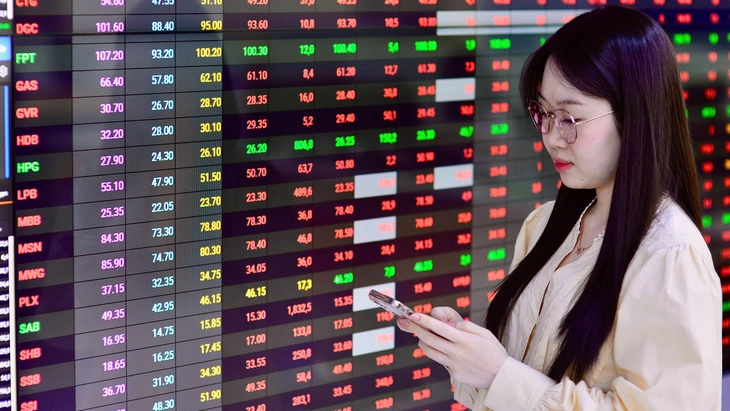
Market liquidity is absent in sessions of 40,000 - 50,000 billion VND, VN-Index is gloomy in a state of adjustment - Photo: QUANG DINH
This decline makes investors wonder: Where is the money leaving the stock market going?
Many factors cause liquidity to decline
Data from last week showed that the total trading value on the HoSE floor decreased to more than VND25,000 billion per session, equivalent to a decrease of nearly 20% compared to the previous week. Previously, market liquidity remained at a higher level, with the average trading value in October reaching about VND31,000 billion per session, in September reaching VND34,000 billion per session and especially in August exceeding VND49,500 billion per session.
Speaking to Tuoi Tre, Ms. Tran Thi Khanh Hien - Director of Research at MB Securities (MBS) - said that the recent decline in market liquidity was due to the resonance of many factors. Among them is the seasonal factor, at the end of the year, businesses and investors often need to withdraw money to handle other needs, not just for investment.
In addition, the increasing trend of deposit interest rates also affects the liquidity of the stock market. MBS's report shows that six banks adjusted deposit interest rates in October. Of which, LPB is the bank with the highest 12-month deposit interest rate at 6.1%/year.
The fact that deposit interest rates are starting to increase in the beginning of the fourth quarter reflects the increased demand for capital mobilization to meet credit demand that tends to increase sharply towards the end of the year according to the seasonal cycle, according to MBS experts.
According to the State Bank, as of October 30, outstanding credit balance of the entire system had increased by about 15% compared to the end of 2024, and is expected to continue to increase strongly to 19% to 20% by the end of this year.
Ms. Hien said that by the end of October, the average 3-month term interest rate of the private commercial bank group was at 4.1%. The average 12-month term interest rate of the private commercial bank group increased to 5.34%, while the interest rate of the state-owned commercial bank group remained stable at 4.7%. Accordingly, the average 12-month term interest rate of commercial banks increased by 15 basis points compared to the beginning of the year to 5% at the end of October.
For individual investors, when interest rates increase, they can consider between investing in stocks and depositing money in banks. However, experts all believe that at the current level of increase (just increasing), the impact on individual investors is still not much.
"In essence, stocks are considered a riskier investment channel than options such as buying bonds or bank deposits. Therefore, businesses often use their idle money to choose stocks when the return is attractive enough, but recently the VN-Index has adjusted, many stocks have fallen sharply," Ms. Hien stated the main reason.
Meanwhile, Mr. Huynh Anh Huy - CFA, Director of Industry Analysis at Kafi Securities - mentioned another reason affecting the liquidity of the underlying market, which is the attraction from IPO deals. Although this money may return to the market, it is currently being temporarily withdrawn.
"Short-term psychological factors, such as exchange rate pressure, rising deposit interest rates, margin pressure, and trading cash flow being withdrawn to invest in new blockbuster IPO deals, are possible causes of short-term downward pressure," Mr. Huy assessed.

Transaction at Techcombank (HCMC) - Photo: QUANG DINH
Stocks with solid foundations will return to the race
Mr. Huynh Anh Huy said that it is not entirely correct to say that the VN-Index has reached an attractive level, but amid the current correction wave, there are still many good opportunities in businesses with stable business operations and reasonable valuations.
According to Ms. Nguyen Hoai Thu - CFA, Deputy General Director of VinaCapital, the average profit of listed enterprises in 2025 will increase by about 23%, and maintain an increase of 16%/year in the period 2026 - 2027.
"If we remove the 13 stocks that have increased rapidly, the 12-month projected P/E will only be about 10.5 times, while corporate profits will still increase by 16%. Many stocks have not yet reflected their full potential, this is an investment opportunity for 2026," said Ms. Thu.
According to Ms. Thu, when the Fed lowers interest rates, exchange rates stabilize and Vietnam is upgraded to the emerging market group, foreign capital flows will return strongly, creating a significant boost for the market. However, she also noted the risk that interest rates may increase again under exchange rate pressure, so long-term investors should select stocks with solid fundamentals and reasonable valuations.
Mr. Tran Hieu - Head of Business Development Department of Mirae Asset Vietnam Fund Management Company - said that the current market valuation is not too high. The fund is still holding over 90% of its portfolio in stocks, showing confidence and optimistic expectations for the Vietnamese stock market.
Mr. Hieu forecasts that listed companies' profits will increase by 15-20% in 2026, making market valuations more attractive.
"In addition, when Vietnamese stocks are officially included in the FTSE Russell Emerging basket, there will be about 1 billion USD in passive capital flows from ETFs tracking the index. In addition, capital from active funds is expected to come in earlier and on a larger scale," Mr. Hieu said.
After the hot growth period, opportunities return to the "remaining stocks"
According to data from Fiintrade, the P/E valuation of the Vietnamese stock market is currently around 14.9x, up more than 11% in 6 months. However, in the banking sector - the group accounting for nearly 40% of the total market profit - it is only around 10.4x, up slightly by 6%.
The non-financial group currently has an average P/E ratio of 19.9 times, which at first seems "hot" when this index has increased by 13.5% recently.
However, if excluding two groups of stocks with strong growth, Vingroup and Gelex - names with outstanding price increases in the recent period - the actual P/E of the non-financial group is only about 14.3 times, down 4.1% in the past 6 months, although the group's total profit still maintains growth.
Therefore, Fiingroup experts believe that 2026 may be the year of the "rest" of the market, businesses that are quietly accumulating, possessing a sustainable profit foundation but have not yet received attention from cash flow.
What to do in 2026 when cheap money is gone?
What should you do if the advantage of cheap cash flow is no longer available next year? Experts say that individual investors, if they do not have enough time to analyze and manage portfolio risks themselves, should not risk investing in stocks themselves.
Instead, people should invest indirectly through open-end funds, which are both comfortable and effective in the medium and long term.
Meanwhile, a representative of Fiingroup - a company specializing in financial data - said that September 2025 recorded 20/36 open-end equity funds increasing disbursement, marking the second consecutive month this trend was maintained (compared to 21/34 funds in August).
This development shows that fund managers' confidence in the market's medium-term outlook is still maintained, despite the short-term correction of the VN-Index.
VinaCapital representative said that although the short-term market is down, Vietnam's economic foundation is clearly improving, creating the foundation for a period of recovery and sustainable growth.
In the next 12 months, the operating policy is expected to continue to play a supportive role as the Fed enters a rate cutting cycle, helping to reduce domestic interest rate pressure and expand room for monetary easing.
At the same time, public investment is likely to be boosted, becoming a key driving force for growth, especially in the construction materials, infrastructure and banking sectors.
Source: https://tuoitre.vn/dong-tien-tren-thi-truong-chung-khoan-dang-nguoi-nhanh-vi-sao-20251108225406939.htm







![[Photo] Cutting hills to make way for people to travel on route 14E that suffered landslides](https://vphoto.vietnam.vn/thumb/1200x675/vietnam/resource/IMAGE/2025/11/08/1762599969318_ndo_br_thiet-ke-chua-co-ten-2025-11-08t154639923-png.webp)





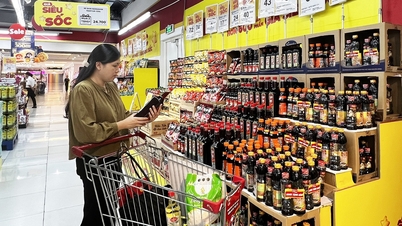

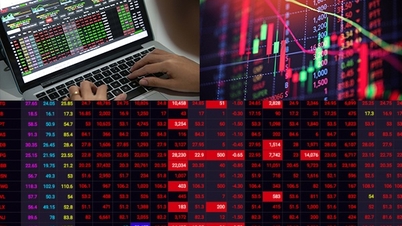



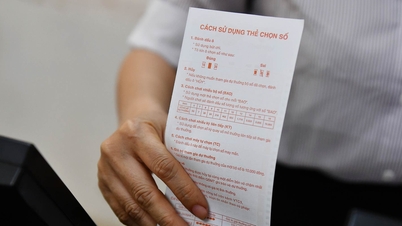




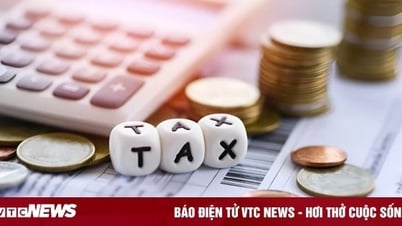









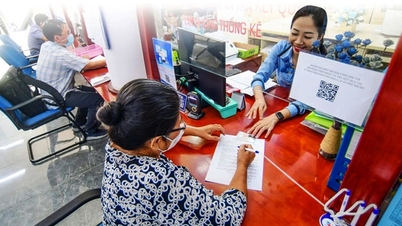













![[Video] Hue Monuments reopen to welcome visitors](https://vphoto.vietnam.vn/thumb/402x226/vietnam/resource/IMAGE/2025/11/05/1762301089171_dung01-05-43-09still013-jpg.webp)














































![Dong Nai OCOP transition: [Part 2] Opening new distribution channel](https://vphoto.vietnam.vn/thumb/402x226/vietnam/resource/IMAGE/2025/11/09/1762655780766_4613-anh-1_20240803100041-nongnghiep-154608.jpeg)













Comment (0)